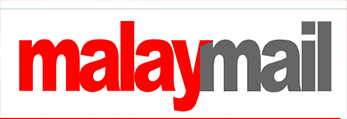LONDON, April 25 — British lawmakers have called on the government to “urgently” clarify what will happen next week when new post-Brexit border checks for goods imported from the EU, which some businesses say could reduce choice and drive up prices, are due to begin.
The first phase of Britain’s new Border Target Operating Model, requiring additional certification, came into force on January 31.
A second phase is due to start on April 30, introducing physical checks at ports for so called “medium risk” animal products, plants and plant products, such as meat, fish, cheese, eggs, dairy products and certain cut flowers.
While Britain’s major supermarkets and large European Union exporting businesses have the resources to handle the paperwork and new demands, smaller retailers and wholesalers have warned that consumers should expect a reduced variety of quality goods, less fresh produce and higher prices.
Advertisement
Media reports last week suggesting that the new regime would not commence in full on the planned date were rebutted by the Department for Environment, Food & Rural Affairs (Defra).
However, parliament’s cross-party Efra committee of lawmakers on Thursday wrote to Defra minister Steve Barclay expressing concern that a Defra presentation had stated it planned to initially set the rate of checks to zero % for all commodity groups.
“We are concerned that this is a sixth delay to the implementation of Sanitary and Phytosanitary (SPS) import checks in all but name,” Conservative Party lawmaker and Efra committee chair Robert Goodwill said in the letter.
Advertisement
He wants Defra to clarify what a “graduated” or “light touch” approach to the April 30 measures looks like in practice and what percentage of new SPS checks on imports would take place from April 30 in each category.
The letter also asks when the measures would be scaled up to their intended capacity, and what barriers remained to implementing any or all checks on April 30.
It acknowledges that ports and businesses have experienced “confusion and frustration”.
It states it is essential the “Department urgently takes steps to communicate the changed arrangements to businesses and the public to build confidence in our incoming border controls and reduce disruption”.
The government said it would take a “pragmatic approach” to the new checks and would maintain the smooth flow of imported goods.
“Checks are commencing from 30 April and, as we have always said, the medium and high-risk goods posing the greatest biosecurity risk are being prioritised as we build up to full check rates and high levels of compliance,” a government spokesperson said. — Reuters








